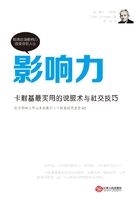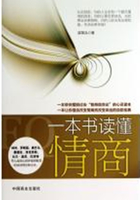It seems to me, paradoxically, that both long ago and only yesterday I attended my own Class Day in 1975. I am pleased and honored to be invited back by the students of Harvard. Our speaker in 1975 was Dick Gregory, the social critic and comedian, who was inclined toward the sharp-edged and satiric. Central bankers don‘t do satire as a rule, so I am going to have to strive for“kind of interesting”.
When I attended Class Day as a graduating senior, Gerald Ford was President, and an up-and-coming fellow named Alan Greenspan was his chief economic adviser. Just weeks earlier, the last Americans remaining inSaigon had been evacuated by helicopters. On a happier note, the Red Sox were on their way to winning the American League pennant. I skipped classes to attend a World Series game against the Cincinnati Reds. As was their wont in those days, the Sox came agonizingly close to a championship but ended up snatching defeat from the jaws of victory. On that score, as on others-disco music and Pet Rocks come to mind-many things are better today than they were then. In fact, that will be a theme of my remarks today.
Although 1975 was a pretty good year for the Red Sox, it was not a good one for the U.S. economy. Then as now, we were experiencing a serious oil price shock, sharply rising prices for food and other commodities, and subpar economic growth. But I see the differences between the economy of 1975 and the economy of 2008 as more telling than the similarities. Today’s situation differs from that of 33 years ago in large part because our economy and society have become much more flexible and able to adapt to difficult situations and new challenges. Economic policymaking has improved as well, I believe, partly because we have learned well some of the hard lessons of the past. Of course, I do not want to minimize the challenges we currently face, and I will come back to a few of these. But I do think that our demonstrated ability to respond constructively and effectively to past economic problems provides a basis for optimism about the future.
I will focus my remarks today on two economic issues that challenged us in the 1970s and that still do so today-energy and productivity. These, obviously, are not the kind of topics chosen by many recent Class Day speakers-Will Farrell, Ali G, or Seth MacFarlane, to name a few. But, then, the Class Marshals presumably knew what they were getting when they invited an economist.
Because the members of today‘s graduating class-and some of your professors-were not yet born in 1975, let me begin by briefly surveying theeconomic landscape in the mid 1970s. The economy had just gone through a severe recession, during which output, income, and employment fell sharply and the unemployment rate rose to 9 percent. Meanwhile, consumer price inflation, which had been around 3 percent to 4 percent earlier in the decade, soared to more than 10 percent during my senior year.
The oil price shock of the 1970s began in October 1973 when, in response to the Yom Kippur War, Arab oil producers imposed an embargo on exports. Before the embargo, in 1972, the price of imported oil was about$3.20 per barrel; by 1975, the average price was nearly $14 per barrel, more than four times greater. President Nixon had imposed economy-wide controls on wages and prices in 1971, including prices of petroleum products; in November 1973, in the wake of the embargo, the President placed additional controls on petroleum prices.
As basic economics predicts, when a scarce resource cannot be allocated by market-determined prices, it will be allocated some other way-in this case, in what was to become an iconic symbol of the times, by long lines at gasoline stations. In 1974, in an attempt to overcome the unintended consequences of price controls, drivers in many places were permitted to buy gasoline only on odd or even days of the month, depending on the last digit of their license plate number. Moreover, with the controlled price of U.S. crude oil well below world prices, growth in domestic exploration slowed and production was curtailed-which, of course, only made things worse.
In addition to creating long lines at gasoline stations, the oil price shock exacerbated what was already an intensifying buildup of inflation and inflation expectations. In another echo of today, the inflationary situation was further worsened by rapidly rising prices of agricultural products and other commodities.
Economists generally agree that monetary policy performed poorlyduring this period. In part, this was because policymakers, in choosing what they believed to be the appropriate setting for monetary policy, overestimated the productive capacity of the economy. I’ll have more to say about this shortly. Federal Reserve policymakers also underestimated both their own contributions to the inflationary problems of the time and their ability to curb that inflation. For example, on occasion they blamed inflation on so-called cost-push factors such as union wage pressures and price increases by large, market-dominating firms; however, the abilities of unions and firms to push through inflationary wage and price increases were symptoms of the problem, not the underlying cause. Several years passed before the Federal Reserve gained a new leadership that better understood the central bank‘s role in the inflation process and that sustained anti-inflationary monetary policies would actually work. Beginning in 1979, such policies were implemented successfully-although not without significant cost in terms of lost output and employment-under Fed Chairman Paul Volcker. For the Federal Reserve, two crucial lessons from this experience were, first, that high inflation can seriously destabilize the economy and, second, that the central bank must take responsibility for achieving price stability over the medium term.














